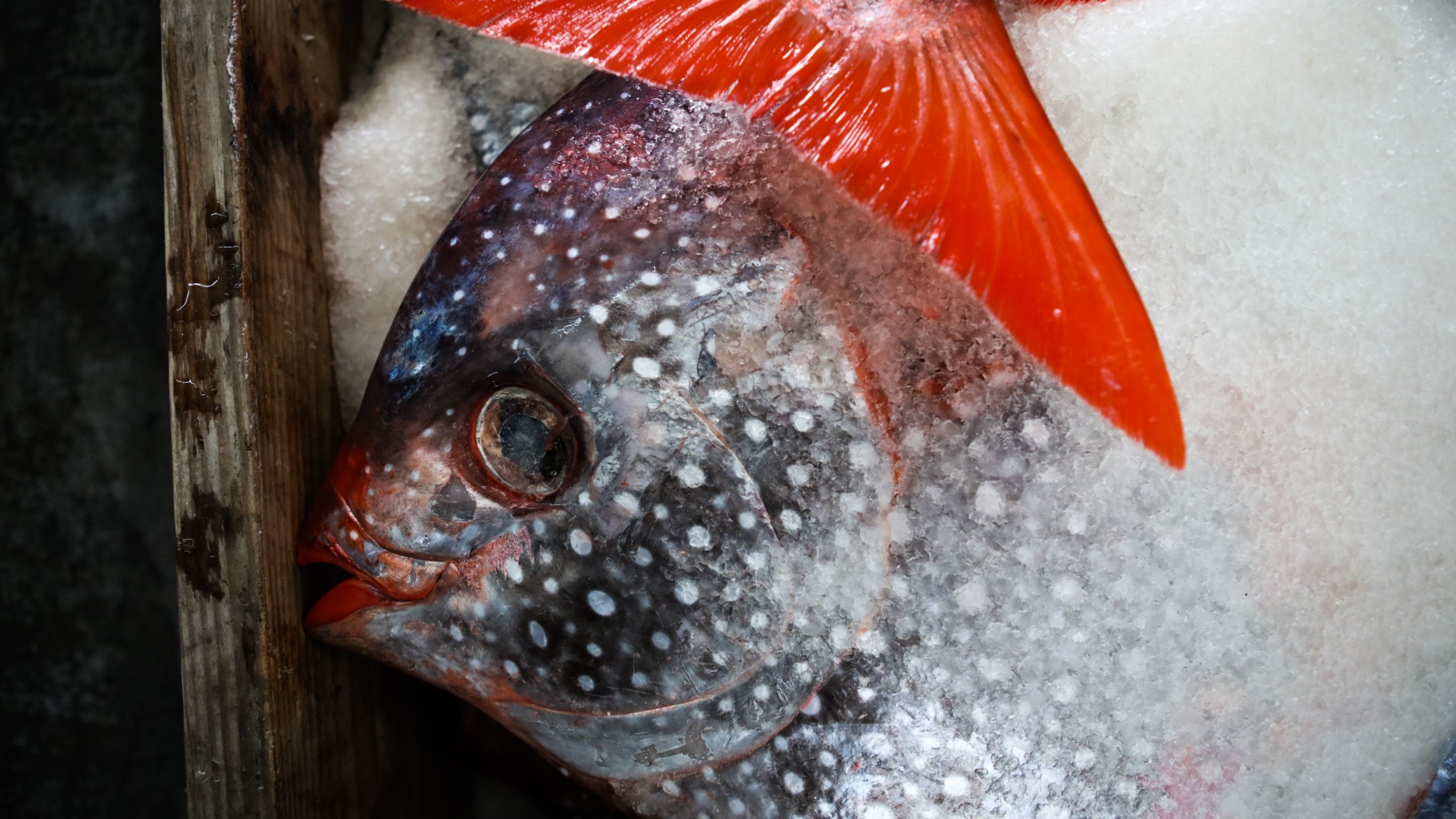
Getty Image / Gabrielle Lurie / San Francisco Chronicle
A novice angler using rented equipment on an overnight fishing trip out of San Diego caught a rare Opah, known as a ‘moonfish’, that is now a pending fishing world record.
The first time I saw an Opah fish in person was actually at Whole Foods in SoHo. They had the large, other-worldly looking fish sitting on ice before it was filleted and it might’ve been the best sales tactic imaginable. It drew constant attention from passersby stopping to ask what the rare opah, or moonfish, was.
Suffice it to say, this first-time angler who reeled in a pending IGFA fishing world record for opah on an overnight trip in San Diego likely had no idea what he’d reeled up when he first got eyes on it.
In fact, according to Pete Thomas at For The Win, angler Beau Leaman of Tacoma, Washington believed his jig was hooked on the bottom and didn’t even think he was fighting a fish at first.
Here is the angler and crew bringing the bright red, orange, and white fish over the gunwale.
The captain of the boat said in the 40 years they’ve been operating that full-time charter fishing vessel they have only seen THREE opah (moonfish) caught. That’s how rare of a catch this is!
The current IGFA Fishing World Record for Opah (Lampris incognitus) is a fish weighing 180 lb 12 oz. That was caught off Baja California, San Quintin, Mexico back on August 1, 2014. It’s interesting that both were caught at the beginning of August.
Angler Beau Leaman’s pending fishing world record weighed a whopping 188.6 pounds, or nearly 8 pounds heavier than the existing IGFA fishing world record.
The process for certifying an IGFA world record is never fast. It requires weighing a fish on a certified scale (which they did) then submitting an application that is reviewed in due time.
Fun Facts About The Opah, or Moonfish
Not to be confused with the Ocean Sunfish (Mola Mola):
It really is a fascinating species.